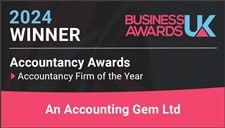When starting or growing a business, one of the biggest early decisions is how to structure it. Should you be a sole trader or set up a limited company?
Both have advantages and the right choice depends on your goals, income and how much responsibility you want to carry.
This simple guide breaks it down.
What Is a Sole Trader?
A sole trader is the simplest business structure. You run the business as an individual, keeping all profits after tax but also taking full responsibility for any debts or liabilities.
You’ll:
- Register with HMRC for Self-Assessment
- Pay Income Tax and Class 2 & Class 4 National Insurance on profits
- Keep basic financial records
✅ Advantages:
- Easy to set up and run
- Minimal paperwork
- Full control and privacy
- All profits are yours
⚠️ Considerations:
- You are personally liable for debts
- Raising finance can be harder
- Less perceived credibility with some clients or suppliers
What Is a Limited Company?
A limited company is a separate legal entity. This means your business finances are distinct from your personal finances.
You’ll:
- Register with Companies House
- File annual accounts and confirmation statements
- Pay Corporation Tax on profits
- Usually pay yourself through a mix of salary and dividends
✅ Advantages:
- Limited liability – your personal assets are protected
- Tax efficiency – potentially lower tax on profits
- Easier to bring in partners or investors
- Increased professional credibility
⚠️ Considerations:
- More administration and reporting to HMRC & Companies House
- Accounting is more complex
- You must make company information publicly available
Comparing the Two at a Glance
| Feature | Sole Trader | Limited Company |
|---|---|---|
| Setup | Simple & fast | Requires registration with Companies House |
| Liability | Unlimited (personal risk) | Limited to company assets |
| Tax | Income Tax & NI | Corporation Tax, Dividends & PAYE |
| Profit retention | All profits yours | Profits belong to the company |
| Privacy | Full privacy | Public record via Companies House |
| Costs | Low setup cost | Higher admin & accountancy costs |
Which Structure Is Right for You?
If you’re just starting out, testing an idea or working alone, sole trader can be simpler and more flexible.
If you’re planning to grow, take on employees or want to separate your personal finances, a limited company may offer better long-term protection and tax benefits.
The best decision depends on your circumstances and it’s wise to get professional advice before registering.
Please also see: https://www.gov.uk/set-up-business
💎 How An Accounting Gem Can Help
At An Accounting Gem, we help you make the right start. We’ll:
- Advise on which structure best fits your goals
- Handle company formation or HMRC registration
- Set up efficient bookkeeping and payroll systems
- Keep you compliant and tax-efficient from day one
Whether you’re a one-person venture or scaling a team, we’ll make sure your structure supports your success.
📞 Get in touch today to book your free initial meeting.
Please see another An Accounting Gem blog: https://www.aag-accountants.co.uk/why-ipswich-is-a-great-place-to-start-a-small-business/



